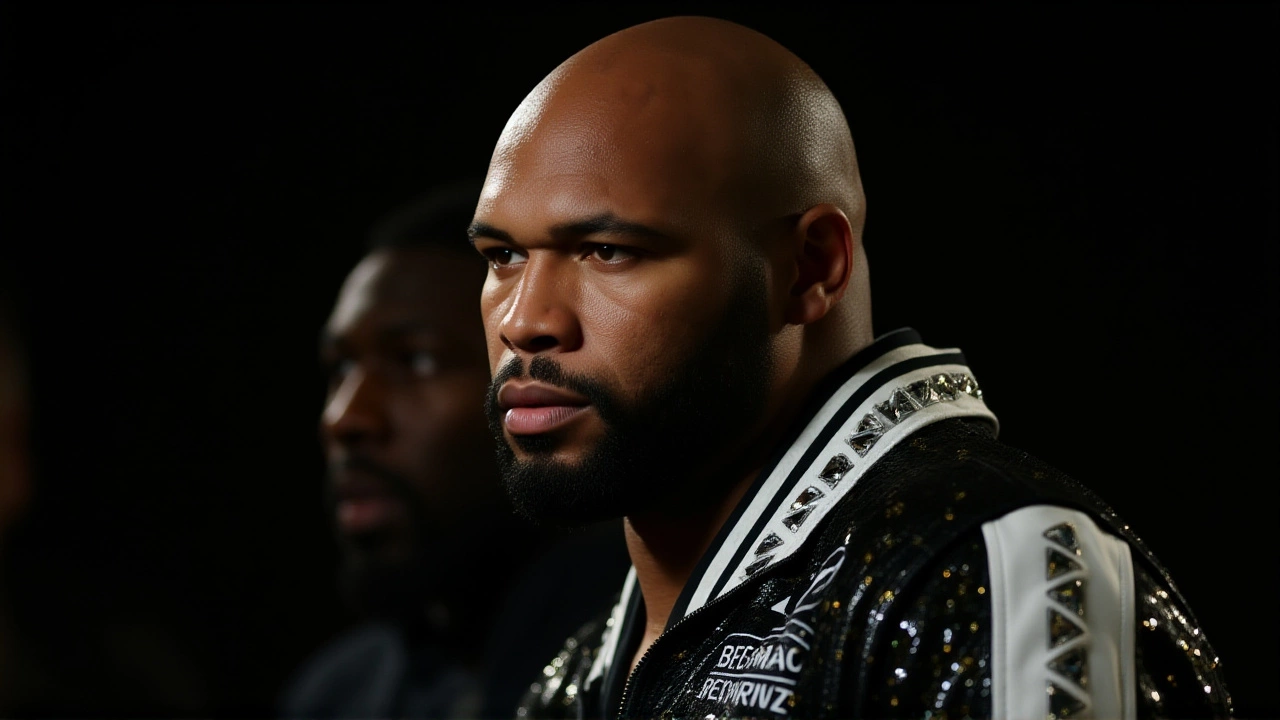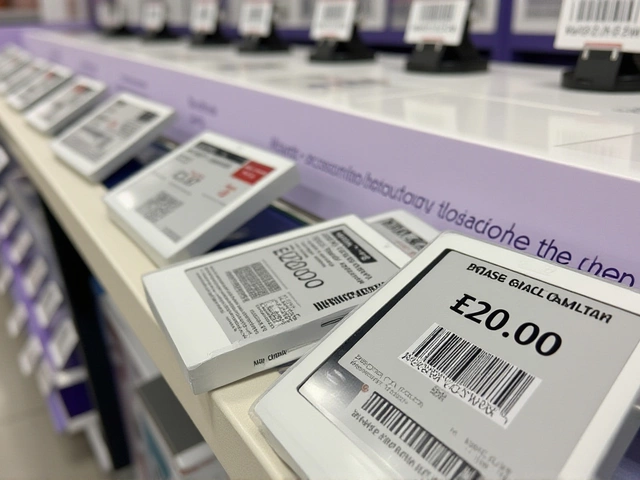The BBC is bringing professional boxing back to free-to-air television in the UK — not as a one-off, but as the start of something lasting. On Saturday, November 29, 2025, Vaillant Live Arena in Derby, Frazer Clarke, the 33-year-old British heavyweight, will face Jeamie Tshikeva — better known as TKV — for the vacant British heavyweight title. It’s the headliner of a night that signals a major shift in how the UK watches boxing. No more hiding behind paywalls. No more waiting for Olympic amateur bouts. This is the real deal, live on the BBC.
A Long-Awaited Return
Boxing was once a staple of British Saturday nights. In 1938, the BBC aired the country’s first televised bout — a landmark moment. For decades, fighters like Lennox Lewis and Anthony Joshua graced the nation’s screens without subscription fees. But over the last 15 years, it vanished. Sky Sports and DAZN locked up the big names, the big purses, the big fights. The BBC? They stuck to the Olympics, the Commonwealth Games, the occasional amateur showcase. Professional boxing? It was as if it never existed on public service TV.
That changes now. The broadcaster’s new partnership with Boxxer, the UK-based promotion company, isn’t just a one-night stunt. It’s a commitment. BBC executives told The Independent this is the first of many primetime boxing nights. And they mean it. The fight was originally set for October 25, but got pushed back after TKV suffered a hand injury. The delay wasn’t just logistical — it was a statement. Safety first. Quality over speed. The BBC and Boxxer weren’t going to rush this comeback.
The Fight Card and Broadcast Details
The full card is stacked. Alongside Clarke vs Tshikeva, Bobby Dalton, the English welterweight champion, defends his belt against Joel Kodua. In the bantamweight division, Francesca Hennessy takes on Fabiana Bytyqi. There’s also middleweight showdowns, cruiserweight clashes, and a super-featherweight bout between Josh Rose and Jorge Luis Huerta Balleza.
Here’s how to watch: BBC iPlayer streams the entire night from 6:00 PM to 10:00 PM GMT. BBC Two picks up the broadcast at 8:00 PM GMT, focusing on the main event and the final three fights. It’s a smart split — casual viewers get the headline act, while diehards can tune in early for the undercard. No extra cost. No login. Just the BBC.
Why This Matters
This isn’t just about boxing. It’s about access. For years, fans had to pay £20 a month just to see the top fighters. Now, a teenager in Glasgow, a retiree in Plymouth, a family in Hull — they can all watch a British heavyweight title fight without opening their wallets. That’s huge. And it’s not just about the money. It’s about legacy. The BBC has a responsibility to serve the public. Boxing, with its raw drama and working-class roots, has always been part of that.
Boxxer’s CEO, in an internal memo leaked to Box.Live, called this “the beginning of a new chapter for British boxing.” They’re not just selling fights — they’re rebuilding a relationship between the sport and the people. And the BBC? They’re not just broadcasting. They’re reclaiming a piece of cultural history.
What’s Next?
This is just round one. Boxxer has already confirmed three more events under the BBC deal through 2026, with dates to be announced. One is rumored to be in Manchester, another in Glasgow. The British Boxing Board of Control (BBBofC) has noted a 40% spike in amateur registrations since the deal was announced — a sign that kids are seeing this and thinking, “I want to be on that screen.”
Meanwhile, the global boxing calendar keeps spinning. On the same night as Clarke vs Tshikeva, Whittaker vs Gavazi hits The NEC in Birmingham, and Kraus vs Ibrahim takes place in Rotterdam. But none of them carry the weight of this one. Because for the first time in over a decade, Britain’s most trusted broadcaster is back in the ring.
Historical Context: Boxing and the BBC
The BBC’s last major boxing push ended in the early 2010s, after Anthony Joshua’s rise to prominence. But even then, the broadcaster’s role was shrinking. By 2017, Sky had locked down most of the UK’s top fighters. The BBC’s boxing output became limited to the Commonwealth Games and occasional amateur tournaments. Fans missed the voices of Jim Lampley and Steve Bunce on Saturday nights. They missed the crackle of a live crowd on free TV.
Now, the Vaillant Live Arena — a purpose-built 3,500-seat venue in Derby — will echo with that same energy. And this time, it’s not just for the lucky few who can afford a subscription. It’s for everyone.
Frequently Asked Questions
Why did the BBC delay the fight from October to November?
The bout was postponed after Jeamie Tshikeva suffered a hand injury during training in late September. Both Boxxer and the BBC prioritized fighter safety over schedule, delaying the event by five weeks to ensure Tshikeva was fully fit. The decision was praised by the British Boxing Board of Control, which emphasized that quality and safety outweigh timing in high-profile returns.
Can I watch the fight outside the UK?
BBC iPlayer is geo-restricted to UK viewers only. International fans won’t get official access through the BBC, though some may find unofficial streams — which carry legal and quality risks. Boxxer has not announced any international broadcast partners yet, but a global streaming option could be added for future events under the new deal.
Is this the start of a long-term BBC boxing strategy?
Yes. BBC executives confirmed to The Independent that this is the first of at least four scheduled events under a multi-year deal with Boxxer. The network aims to air at least two major boxing nights annually, with potential expansion to regional venues like Manchester and Newcastle. Amateur boxing coverage will continue alongside this new professional lineup.
Who are Frazer Clarke and Jeamie Tshikeva?
Frazer Clarke, 33, is a former Olympic bronze medalist and undefeated professional with 10 wins, 9 by knockout. He’s known for his power and technical precision. Jeamie Tshikeva, 29, is a rising contender from the UK with a 14-1 record and 10 KOs. He’s been called the most dangerous British heavyweight outside the top 10. Neither has held a national title — making this fight the first time both have a chance to become British champion.
How does this affect UK boxing’s future?
This could revive the domestic boxing pipeline. With free-to-air exposure, sponsors may return to grassroots gyms. Amateur clubs report a 30% surge in inquiries since the BBC announcement. More importantly, it breaks the monopoly of pay-TV, giving young fighters a clearer path to visibility — something that’s been missing since the 2010s. The British Boxing Board of Control sees this as a potential turning point for the sport’s sustainability.
Will other broadcasters follow the BBC’s lead?
It’s possible. ITV and Channel 4 have quietly expressed interest in exploring similar partnerships, especially if ratings exceed 1.5 million viewers. But the BBC’s public service mandate gives it a unique advantage — it doesn’t need to chase subscriptions. If this event draws strong numbers, it could force Sky and DAZN to rethink their pricing models, potentially leading to more affordable access across the board.





Write a comment